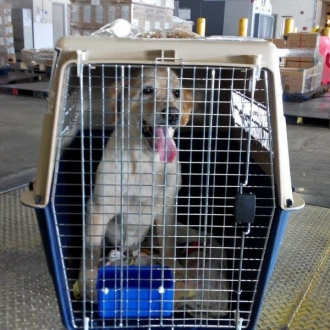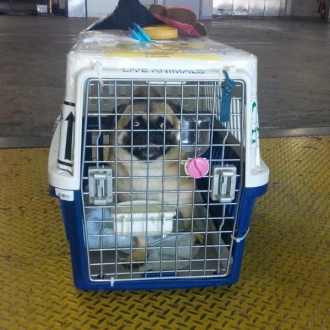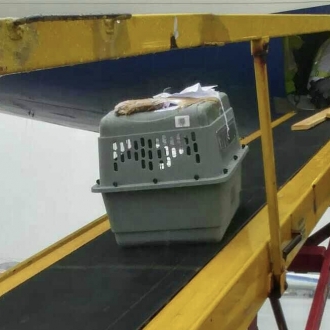National entry and exit laws and regulations
The immigration procedures of the pet are more tiring and more complicated than those of the people, and it is necessary to carry out the pre - quarantine inspection until it is transported to the plane. And each country has different quarantine requirements. Only ten different pet immigrants are required in European countries. In addition, some countries have no direct flights in Hong Kong, and the central transfer regulations have to be paid attention to, so pet immigration is a long and complex job. The Pet-cargo agent, which has 13 years of pet immigration, will greatly reduce the time and his annoying problems.
The following are the basic regulations and requirements related to pet immigration countries.
Europe (except Switzerland)
Pet entry into continental European countries has the following procedures.
1) health certificate. The health certificate issued within 48 hours before departure is valid. The certificate is issued by the veterinarian, indicating that the veterinarian must be an agent approved by the relevant department responsible for issuing the exit certificate. It is not affected by any infectious disease, bacterial disease and rabies.
2) immunity injection of rabies. It is worth mentioning that in a country that has eliminated rabies, such as Britain, Ireland, Australia, and other countries, after 6 months of life, it is not necessary to have this certificate. However, it is better to vaccinate the pet against rabies, out of care for the pet and reaching the destination, to convince the customs that the pet meets the epidemic requirements.
3) exit certificate. Effective exit certificates are obtained from relevant departments registered with pets. The certificate states that in the past two years, the pet residence has no epidemic of infectious diseases. According to the law, infectious diseases should be reported to the relevant departments of the country. The exit certificate is issued by the competent authority of the country where it is located. If it meets the requirements, the certificate will be stamped with the seal of approval as soon as it is set foot in the country where it is intended to reside.
Britain and Ireland
There is a slight difference in pets entry between the British Isles and the European continent. All pets must be completely isolated for 6 months in the approved quarantine area. If the rabies vaccine has not yet been vaccinated, pets must be vaccinated against rabies if they enter the quarantine area. All pets entering the UK and Ireland must apply for entry permits in advance. The book is issued by the Ministry of agriculture. British people living abroad, no matter how short the time of his pets leave the UK, will still have to pass the prescribed time of isolation, and have the necessary formalities to be carried out at that time.
Bringing pets into Britain
According to the pet pass (Trial), it is legal to carry cats and dogs, such as cats, dogs, and other pets from certain countries to the UK, as long as they are in accordance with the prescribed conditions. Animals entering the United Kingdom from these countries and ports must receive quarantine quarantine for 6 months in designated places. This rule will be strictly enforced. Therefore, animals illegally entering Britain will be slaughtered according to law. This provision is equally effective in the Strait Islands.
The risk assessment conducted by the British government on the inspection of pets in other countries has been systematically carried out. The progress and results of the work will be timely communicated to the public.
Australia
All pets entering Australia must comply with the quarantine regulations and must obtain an entry permit from Australia in advance. Except for pets from New Zealand and coconut, pets in other countries are separated according to the rules: pets from Britain or Republic of Ireland are isolated for two months; pets from Norway, Sweden or Hawaii are isolated for 4 months; pets from other countries that allow immigration should be isolated for 9 months; Pets that are not permitted to enter the country must live for 30 days in a country (usually in Britain or Hawaii) where they are permitted to enter the country, and then enter the country with the necessary formalities for the entry of the country into Australia.
mega
The procedures necessary for pets to enter North America are similar to those required for entry to the European continent, except that they are accompanied by bills of lading and immunization certificates. At present, pets do not have to be segregated in the United States, but they must provide a health certificate issued within 10 days, and must be weighed over the quarantine of rabies and other major pet diseases. The translation of the necessary health certificate is not required by law (for example, a Spanish or French health certificate), but a translation will reduce the delay due to a language barrier. Before carrying any animal overseas to Canada, it is necessary to contact Canadian Food Inspection Agency Import Service Centre.
Singapore
Singapore has enacted laws relating to the entry of pets. In addition to the risk of imported dangerous animals, there are restrictions on some cats and dogs. The type of pets allowed is determined by the type of housing people live in. When transporting pets to Singapore, it is suggested that pet owners take into account their age, health, and convenience of transportation, and whether they can adapt to the climate of Singapore and quarantine pets in particular.
In addition, cats and cats need to be vaccinated against rabies when they enter Singapore, and for at least 30 days of quarantine quarantine, except for cats and dogs from Australia, New Jersey, Britain and Ireland. Dogs must be vaccinated to avoid canine distemper, canine hepatitis and canine parvovirus infection.
Singapore also stipulates that owners in the same non-government residential area can only keep 3 dogs at most. According to the regulations of the Housing Development Bureau, dogs prohibited from rearing by the Housing Development Bureau do not appear in residential areas, and cats are not reared in the housing development bureau.
Bottom profile
Shenzhen cypress international consignment Co., Ltd. (abbreviated as the international consignment of cypress) focuses on the consignment service. In the field of pet immigration, we have many years of professional experience. We provide a perfect, professional and effective pet delivery service.
MoreNews
Contact us
- Shenzhen Qianhai Shenzhen and Hong Kong cooperation zone
- 19878831410
- 微信:SunnyNini-1
- eric@petmover.com
- www.petmover.cn













